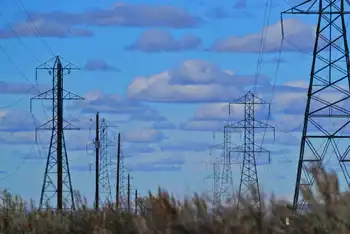Japan crisis on par with Chernobyl
Prime Minister Naoto Kan urged people in a televised address to focus on recovering from the countryÂ’s disasters.
“Right now, the situation of the nuclear reactors at the Fukushima plant has been stabilizing step by step. The amount of radiation leaks is on the decline,” he said.
“But we are not at the stage yet where we can let our guards down.”
Japanese regulators said they raised the rating from 5 to 7 — the highest level on an international scale — after new assessments of radiation leaks from the Fukushima Daiichi plant.
Stocks fell after Japan said the crisis at a stricken nuclear plant is as severe as the 1986 Chernobyl disaster.
The move to raise the severity of the Fukushima plant sent ripples of unease through markets.
“News that the Japanese government has escalated the rating of the Fukushima nuclear threat to 7 injected a sombre tone into the markets,” said Jane Foley, an analyst at Rabobank International.
Investors are also concerned that the global economic recovery is slowing down amid sky-high oil prices, as illustrated by economic figures out of Britain and Germany.
The International Monetary Fund also downgraded its 2011 growth forecast for the U.S., Japan and Britain — three of the world’s top seven industrial countries — largely because of higher oil prices.
Worse than expected earnings from Alcoa Inc., which kicked off the first quarter corporate reporting season in the U.S., also weighed on sentiment ahead of further releases from the likes of JP Morgan Chase & Co and Google Inc.
“All told, equity traders are starting to look rather more bearish,” said Ben Critchley, a sales trader at IG Index.
In Europe, the FTSE 100 index of leading British shares was down 0.8 per cent at 6,004 while GermanyÂ’s DAX fell one per cent to 7,135. The CAC-40 in France was 1.1 per cent lower at 3,996.
Wall Street was poised for a lower opening, too, following a timid performance on April 11 — Dow futures were down 0.4 per cent at 12,274 while the broader Standard & Poor’s 500 futures fell a similar amount to 1,314.
In the currency markets, the British pound was among the biggest movers after figures showed UK inflation in March unexpectedly fell, easing pressure on the Bank of England to raise interest rates as soon as next month.
Though the inflation rate of four per cent is still double the BankÂ’s target, the majority of rate-setters have so far refrained from tightening monetary policy, partly because most of the price pressures are coming from energy costs and tax changes, which the central bank can do little about.
There are also concerns that tighter monetary policy will bring the British economy to a grinding halt.
Figures earlier from the British Retail Consortium showed retail sales in March fell by their biggest amount in at least 16 years.
By late morning London time, the pound was trading 0.5 per cent lower on the day at $1.6260 while the euro was 0.8 per cent firmer at 0.89 pound.
Elsewhere in the currency markets, the euro was trading 0.3 per cent higher at $1.4471 while the dollar fell 0.2 per cent to 84.35 yen.
Earlier in Asia, TokyoÂ’s Nikkei 225 index closed down 1.7 per cent at 9,555.26, on worries that prolonged power shortages would crimp output across regional supply chains and as exporters fell on a strengthening yen.
Taiwan, a key trading partner to Japan, saw its benchmark TAIEX slide 1.7 per cent, while South KoreaÂ’s Kospi tumbled 1.6 per cent.
Related News

Washington State's Electric Vehicle Rebate Program
WASHINGTON DC - Washington State has reached a significant milestone in its electric vehicle (EV) rebate program, with more than half of the allocated funding already utilized. This rapid uptake highlights the growing interest in electric vehicles as residents seek more sustainable transportation options. As the state continues to prioritize environmental initiatives, this development showcases both the successes and challenges of promoting electric vehicle adoption.
A Growing Demand for Electric Vehicles
The substantial drawdown of rebate funds indicates a robust demand for electric vehicles in Washington. As consumers become increasingly aware of the environmental benefits associated with EVs—such as reduced…





